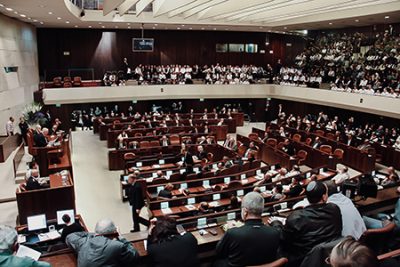×


We have detected your country as:
Please click here to go to the USA website or select another country from the dropdown list.
by: Nathan Williams, Director of Marketing and Communications
 The State of Israel has endured one of the longest periods of political instability in recent memory. Since the dissolution of the government in December 2018 until the end of 2022, the nation has seen four rounds of indecisive snap elections, one haphazard coalition government made up of incongruent political parties and finally a fifth round of elections with more decisive results.
The State of Israel has endured one of the longest periods of political instability in recent memory. Since the dissolution of the government in December 2018 until the end of 2022, the nation has seen four rounds of indecisive snap elections, one haphazard coalition government made up of incongruent political parties and finally a fifth round of elections with more decisive results.
In November 2022, Israeli President Isaac Herzog tasked stalwart statesman Benjamin Netanyahu and his political party Likud to form a government. This charge was completed with relative ease, as the so-called right-wing bloc of parties won a comfortable majority, collectively securing 64 out of the 120 Knesset (Parliament) seats up for grabs.
Days before being sworn in as prime minister of Israel for the sixth time, Netanyahu published the agenda and priorities of the newly formed coalition government. These include:
Almost as soon as the ink on the coalition deals had dried, Western media outlets were littered with headlines warning against what is likely Israel’s most right-wing government in history. It is true that Likud, which is actually center-right, is the most centrist party in the coalition. Then there are Shas and United Torah Judaism, the two ultrareligious right-wing parties in the coalition, collectively holding eighteen seats—and thus considerable sway in Knesset votes. However, these are not the coalition partners about whom the world is most concerned. The international community’s trepidation is reserved for the so-called “extreme right wing,” three ultranationalistic parties that decided to run on one list in the last elections. The venture proved successful. The Religious Zionist Party, Otzma Yehudi (Jewish Power) and Noam won a collective total of 14 seats in the Knesset.
Admittedly, some of the leaders of these right-wing political parties have checkered pasts (which politician does not?). Aryeh Deri, leader of the ultra-religious Shas party, has been convicted of taking bribes, and more recently, of tax evasion. In January 2023, a Supreme Court decision forced Deri to resign from his ministerial position. The ruling does, however, allow him to continue serving as a Member of Knesset. Then there’s Bezalel Smotrich, leader of the Religious Zionist Party, whom adversaries have slated as a “Jewish Supremacist.” Smotrich is quoted as expressing his desire for the State of Israel to be run according to the Torah [Gen.–Deut.] and Jewish law, which is definitely not the ideal agenda for the pluralistic society that many Tel Avivian or staunchly secular Israelis desire. Last but not least, there’s Itamar Ben-Gvir, leader of Otzma Yehudi, who has been charged with hate speech, incitement to violence and is not shy about sharing his standpoints on how to deal with the Palestinians and terrorists, which some consider extreme or even racist.
In the current global cultural climate, ultranationalism is seen as a threat to democracy. Even more so if the political party openly espouses an anti-LGBTQ position, as most of the religious parties in the ruling coalition do. However, in an Israeli context, the ultranationalistic camp are those Israelis who feel most threatened and marginalized by the left-leaning judiciary and ruling governments of the past who have willingly offered up land for peace. Many of these voters—and the party leaders of these factions—live in communities in Judea and Samaria under the constant threat of Palestinian violence and land grabs. They represent a growing number of Israelis who want to see greater representation for the “settler”—Israelis who choose to set down roots in the biblical center of Judea and Samaria—in the government and have greater influence over the security and development in the heartland of Israel.
Despite how the Western media may frame and portray these “right-wing extremists,” it is their actions and deeds that really count. Maybe at the heart of their extremism lies a deep concern to protect and preserve the nation of Israel and to create a safer, stronger state for the Jewish people. While it is important to remain apolitical in our support for Israel, one can recognize that there are those political parties who evidently stand with conviction for the Jewish people’s God-given right to exist in their God-given land. Perhaps ultranationalists have for better or worse become the moniker for the Zionists of today who are still fighting to keep the dream and reality of a Jewish State for the Jewish people alive.
Photo Credit: Click on photo to see photo credit
Photo License: PikiWiki Israel 7260 Knesset Room
All logos and trademarks in this site are property of their respective owner. All other materials are property of Bridges for Peace. Copyright © 2024.
Website Site Design by J-Town Internet Services Ltd. - Based in Jerusalem and Serving the World.